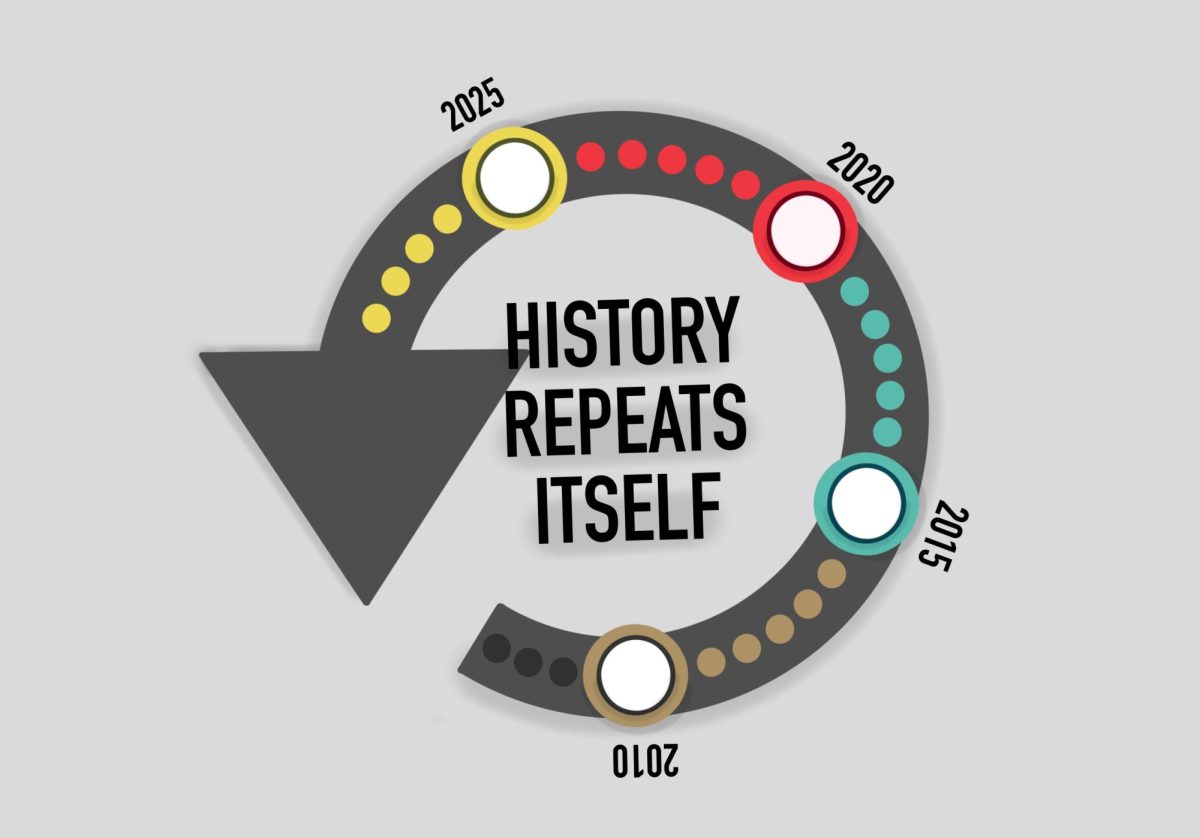Can men and women be friends?
This question has circulated in the media for years, offering a debatable discourse with many who hold strong opinions on what they believe is true.
While the majority may keep their stances on the subject tucked away in the corners of their minds, some prefer to express their viewpoints for all the world to digest. One of those people is the infamous media personality Andrew Tate.
The former kickboxer and reality TV star sparked controversy not too long ago when multiple clips from a podcast he had been a guest on went viral over TikTok.
Most of the clips featured Tate, as well as podcast host Myron Gaines, explaining very brazenly why friendships between men and women should not exist. This provoked viewers to post their own perspectives, resurfacing the incessant debate, this time in a digital landscape.
I decided to ask a few University of Minnesota students for their opinions regarding the statements made on the “FreshandFit” podcast.
Tate is called on to support claims made by Gaines on the “exploitation” of men by women in cross-sex friendships: “What women do is essentially exploit men into being friends with them, and men stay in this relationship waiting around for something to happen,” Tate said.
“I’m not trying to exploit anybody, I just want a friend,” said Harper Deasy, a first-year student at the University. “It’s not my fault if they wanted something else in the beginning.”
If one party in the friendship has deeper feelings and the other knows this to use to their advantage, this could ultimately lead to the exploitative relationship Tate mentions.
There is a difference between a genuine friendship and an exploitative one. Genuine friends offer authentic support that should be reciprocated within the friendship. When you begin to feel the support you offer is taken for granted or not reciprocated, it can also become exploitative. However, this can happen to anybody and does not solely apply to one gender, contrasting what Tate argued.
“I don’t think women expect anything else from their male friends. I think it’s normal, like what they’d expect from their female friends,” said Brendan Culhane, manager at the Coffman Union Starbucks.
Nevertheless, Gaines claims that men can be just as exploitative, stating that “99%” of men who are friends with women have deceiving intentions.
“I think a small percentage, but I wouldn’t say 99%. If you have a good friendship with them, they should know their boundaries,” said Teni Adekunle-Awomuti, a third-year student at the University.
Studies show when a man and woman begin a friendship together, each assumes the feelings they hold are mutual. If one solely sees the other as a friend, they expect the other to feel the same way. Yet if one is attracted to the other, they assume the other also feels this way towards them.
As a result, if one party expects more and no feelings are being communicated, the friendship is bound to become solely platonic on one side with the other left to expect the possibility of something much more intimate the longer they hang around each other. Once they see a clearer shot of that possibility, they may take it.
This buys into Tate’s idea of deceptive intentions, but not to the same extreme as his stated percentage.
There is no specific gender at fault for exploitation or deception in a cross-sex friendship, but there is still some sort of truth blanketed by their absurd claims. So how does one avoid this in a friendship with the opposite sex?
“Communication goes a long way,” Adekunle-Awomuti said. “There’s no line that can be crossed if you know who your friends are.”
Having boundaries and communication is always an essential part of any relationship. Communication is the most important principle to follow to sustain a healthy connection with somebody.
“It’s a general rule, if you have healthy boundaries and communication, there’s no using the other person,” said Ellie Growe, a third-year student at the University. “If a man is in a friendship with a woman and does have feelings for her, he owes it to himself to say something about it.”
Friendships between a man and woman of course contain differences compared to same-sex friendships.
“Friendship is sharing each other’s feelings, having someone to lean on. I don’t quite get that same energy from male friends,” Deasy said. “I feel like they’ve got more of a wall built up.”
Nonetheless, they can also be just as fulfilling when considering those differences.
“I think my male friends offer a different perspective on life,” Growe said.
Having friends of the opposite sex can spark fresh conversations as well as give you greater insight into things you may never have considered before.
So, contrary to Tate and Gaines, cross-sex friendships are possible to have, but it’s a matter of allowing for direct communication between each other, especially at the start.















Lee North
Dec 11, 2023 at 10:28 pm
Interesting comment, I was a police officer for 30 years at the U of M PD, my friends within the student population included when I think back a majority female, I know I have a different prospective on this as being in uniform but gender made no difference, a friend is a friend regardless of gender, I have such wonderful memories of the U of M students, all inclusive.
Ara C.
Dec 7, 2023 at 11:26 am
Dudes seem to think that as a female you owe them something and it’s super tiring. It’s often rare to have a male friend who at the end of the day won’t try to make an advance on you because they have this warped idea that friendship is the equivilent of flirting when it comes to non-males. It’s super degrading and I’ve always noticed the stigma of being the only female in male dominated groups.
I’ve had good friends and bad friends and I’d like to leave a lighthearted reminder to all our fem friends reading this:
When a guy says weird/gross/hurtful things to/about you and then tries to be the victim and guilt trip YOU, they are not your friend.